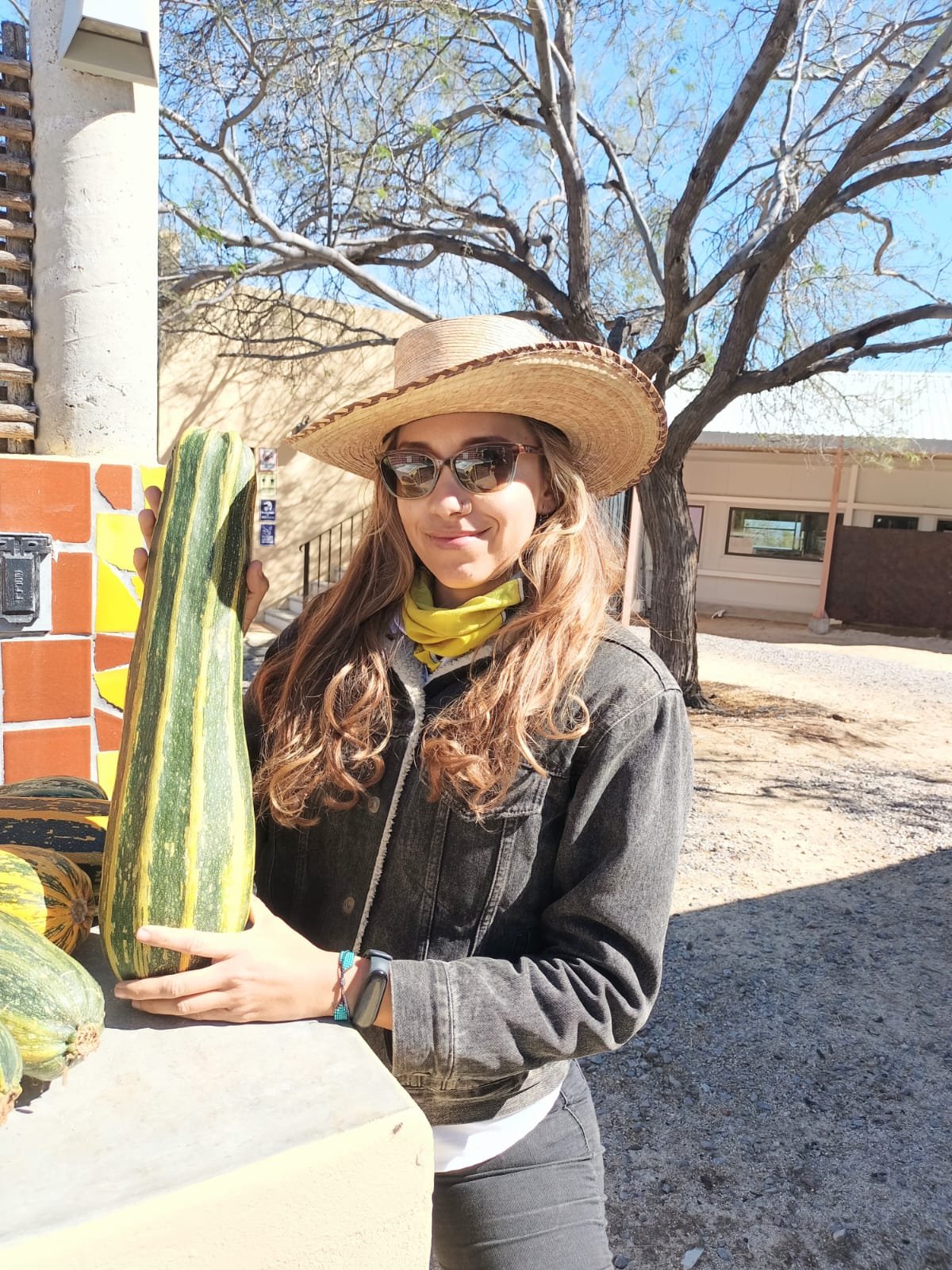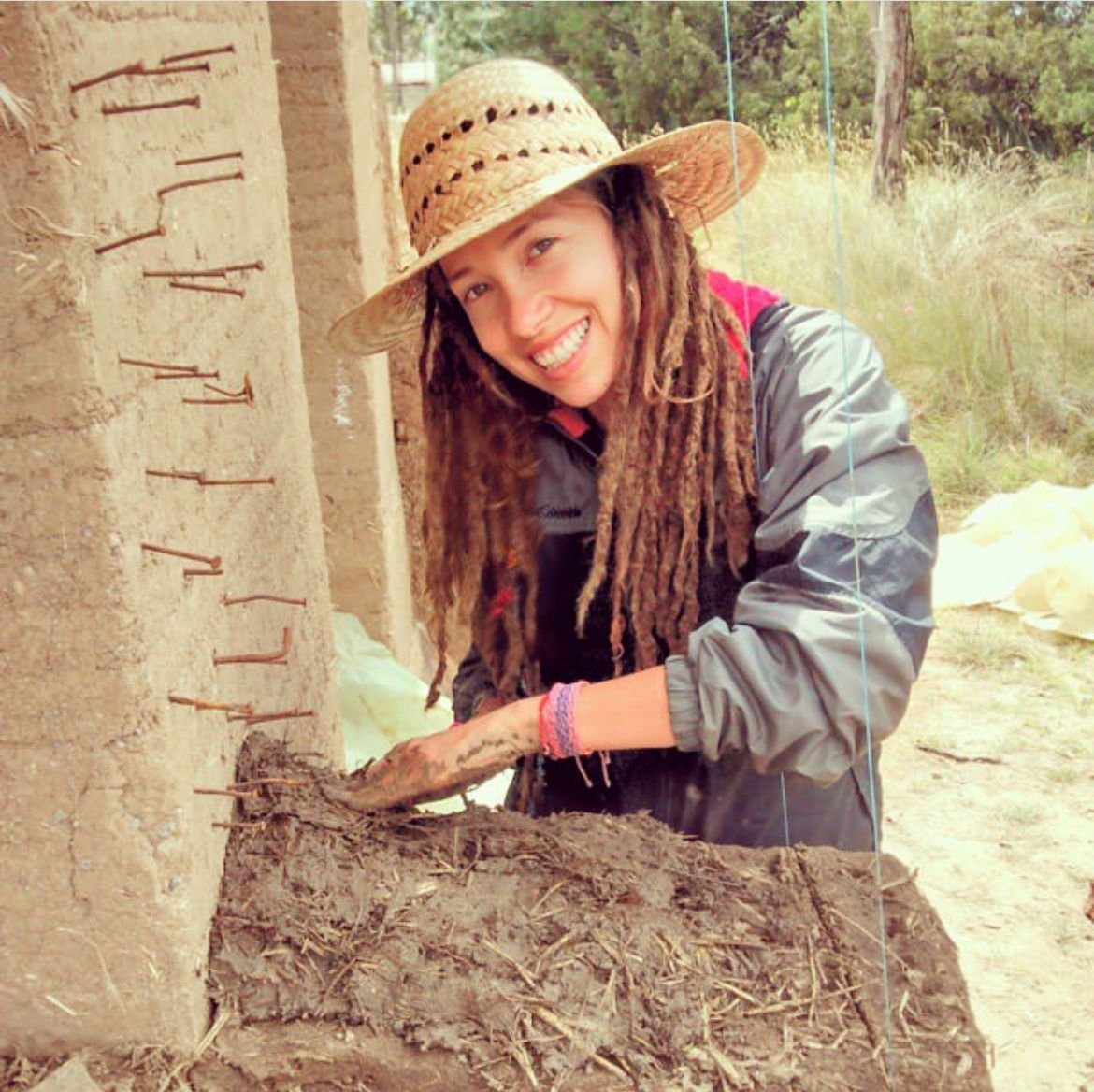
The Challenges of a Young Woman in Mexican Ranching and Agriculture
September 18th, 2023
Written by Esmeralda Ramírez
I come from a family of farmers in a small town in Baja California Sur, Mexico, an arid landscape of extreme scarcity. My grandfather, who founded and ran an orange-growing ranch with my seven uncles, dedicated his entire life to the ranch.
Growing up I observed the family dynamics around the ranch and it made me feel alienated from that world. The women of my family, although they were an essential part of the financial administration, never made decisions about land management. I’ve had a passion for nature from an early age but because of this, I did not conceive of dedicating myself to agriculture until much later.
My interest in conservation, ecology, and solving environmental crises came later in life when I started University. One of the issues that seemed especially important and interesting to me was food systems. To me, food represents our most intimate relationship with nature and the most purposeful avenue for healing ourselves and the earth. In a world facing an imminent climate challenge, the feeling that academic efforts were simply not enough to solve such a complex problem flooded my mind and forced me to act.
I attended college in Ensenada, at the Universidad Autónoma de Baja California, and earned a degree in environmental sciences. I decided to dedicate myself to food systems and agroecology after I visited an eco-village in south Mexico in Veracruz called Las Cañadas during my last semester of college. My approach to natural resources management changed after staying there for a month. Living in a fully sustainable community opened my eyes to what is possible if we fundamentally change our production and economic systems. This small community had experts on many nature-based solutions, including agriculture, natural building, seed production, cattle management, cheese making, poultry, and education. The trigger point for me was witnessing the quality of life this community had, with access to good food and a lifestyle that inherently brought good health.
After finishing college, I was skeptical about continuing to grad school since I was disappointed by the academic approach. Near that time, I attended the permaculture convergence of Baja California, where I met “Gaia's Garden” author Toby Hemenway. After a great conversation, he advised me to go out there, get my hands in the soil, and learn from as many people as possible. And that’s what I did.
When I decided to pursue agroecology and permaculture after college, my real path back to the ranch began. I volunteered on farms, ecovillages, permaculture schools, biodynamics, and civil organizations. During many of these projects, I worked hand-in-hand with farmers, ranchers, and women from rural areas, where I witnessed and experienced the gender gap first-hand. In southern Mexico, this is most evident in land tenure. There, the role of women in the rural context has been reduced to that of caretakers rather than as people with the right to possess and control land. Today, the Mexican Agrarian Law declares that only 21% of the ejidatarios are women; the ejidos represent territory designated for food production and make up more than 50% of the national territory. Not until 50 years after creating this land possession mechanism were women explicitly indicated to be legally entitled to this title.
Years after beginning my land stewardship and conservation journey, I returned to Baja California Sur, where I grew up. When I moved back to Baja, I tried to work at the family ranch, where my relatives invited me to manage some projects like compost and worm compost making, natural fertilizers, and waste management. After writing a proposal and starting the ranch work, my family communicated that I would not earn a salary until they could make further adjustments. There was no budget to build the necessary infrastructure, discouraging me from continuing. I decided to look for other options.
Rancho Cacachilas, where I have worked for the last four years, has significantly invested in my training and has created many opportunities for me to have a positive impact in our region, as well as supporting innovative new projects and collaborations in terms of regenerative farming practices. This company plays an important role in our area, not only in food production but in restoring our landscapes through water retention, erosion control, aquaculture, and sustainable economic models to regenerate our ecosystems and demonstrate appropriate examples of land stewardship. I found myself with the opportunity to work on a productive farm; a ranch in the mountains that produces vegetables, cheeses, honey, and preserves, among other goods.
My experience in this field has been one of challenges and opportunities. The ranching culture, especially in the north of Mexico, is essentially sexist; the approach to agri-food systems was deeply transformed by the Spanish colonization that took place more than 400 years ago, bringing stable animals, foreign crops, and setting the tone for the patriarchal system in the region. As a young woman working alongside leaders who are mostly older men, I have, on many occasions, put in more effort to receive the same recognition as my male counterparts. The tools to treat mental health and conflict resolution in the work environment are commonly undervalued in rural regions, and there is no systematized gender approach. This creates a lack of visibility to the problems occuring in the field and working spaces.
A sensitive approach to the earth's natural cycles, especially in regenerative agriculture is necessary to break with the imposed cultural practices and extensive technical agriculture of where I grew up. To break these paradigms and move closer to more sustainable and resilient practices, we must be inclusive of all of the diverse voices in our community.
The new generations of women in agriculture are responsible for giving our ancestors new meaning, recognizing their powerful role as agents of change, and helping create new opportunities for future generations. The future of land management proposes a holistic vision, returning to traditional food systems, short market chains, local consumption, and fair and inclusive work environments. I wish for safe work environments where we can explore and bring our true essence to our work, feel comfortable taking risks, making decisions, asking questions, and daring to be vulnerable.


